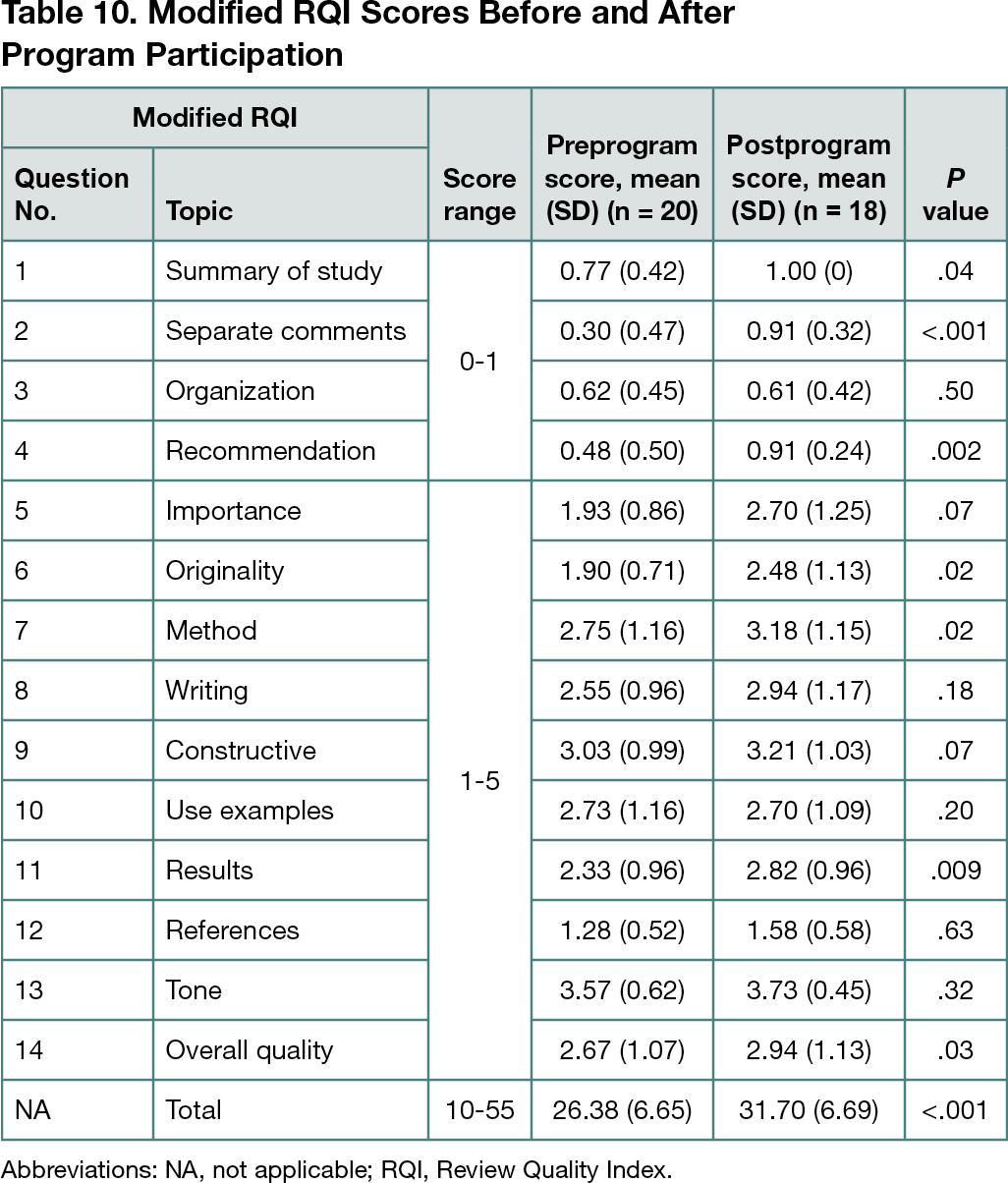Assessment of a Structured and Mentored Peer Review Curriculum on Quality of Peer Review
Abstract
Ariel M. Lyons-Warren,1,2 Whitley W. Aamodt,3 Roy Strowd,4 Kathleen M. Pieper,5 José G. Merino5,6 
Objective
The Resident & Fellow Section (RFS) of Neurology expanded and formalized a biannual virtual, mentored peer review training program in 2020. Similar to prior studies,1 qualitative data demonstrated that mentored peer review improved understanding of and confidence with independent review.2 The objective of the current study was to quantitatively evaluate review quality before and after a mentored peer review program for neurology residents and fellows.Design
In this pre-post intervention study, faculty mentors chosen from a national pool of experienced reviewers with an interest in mentoring were paired with trainee peer reviewers. Mentees were selected from residents and fellows who responded to a call for program participants via American Academy of Neurology social media channels or who applied to the RFS editorial board. Mentees first completed unassisted reviews of a standardized manuscript. Participants then received structured resources on how to review a manuscript and construct written peer review. Mentor-mentee dyads completed 2 reviews over 6 months. Mentees also completed unassisted postprogram reviews of a standardized manuscript. The association between program participation and peer review quality was quantitatively assessed by 3 independent evaluators scoring the preprogram and postprogram unassisted reviews using a modified version of the Review Quality Instrument (RQI)3 comprising 4 items scored present or absent (1 or 0) and 10 items scored on a 5-point Likert scale for a maximum score of 55. Higher scores indicated better review quality. Evaluator scores were averaged for each participant, and a paired t test was used to compare preintervention and postintervention scores. P < .05 was considered significant.Results
A total of 20 mentor-mentee pairs, including 8 incoming members of the RFS editorial board and 12 neurology trainees, were enrolled over 2 sessions in 2021. Two mentees failed to complete the postprogram unassisted review and were excluded. Total modified RQI scores ranged from 15.67 to 39.00 before the program and 19.67 to 43.67 after the program. The mean total score for all participants increased following completion of the program (preprogram, 26.38; postprogram, 31.70; P < .001). Postprogram reviews were more likely to include separate comments for editors and authors (mean preprogram score, 0.30; mean postprogram score, 0.91; P < .001), more likely to identify the strengths and weaknesses of the research methods (mean preprogram score, 2.75; mean postprogram score, 3.18; P = .02), and more likely to comment on the interpretation of results (mean preprogram score, 2.33; mean postprogram score, 2.82; P = .009). Preprogram and postprogram scores for all 14 measures of the modified RQI are shown in Table 10.
